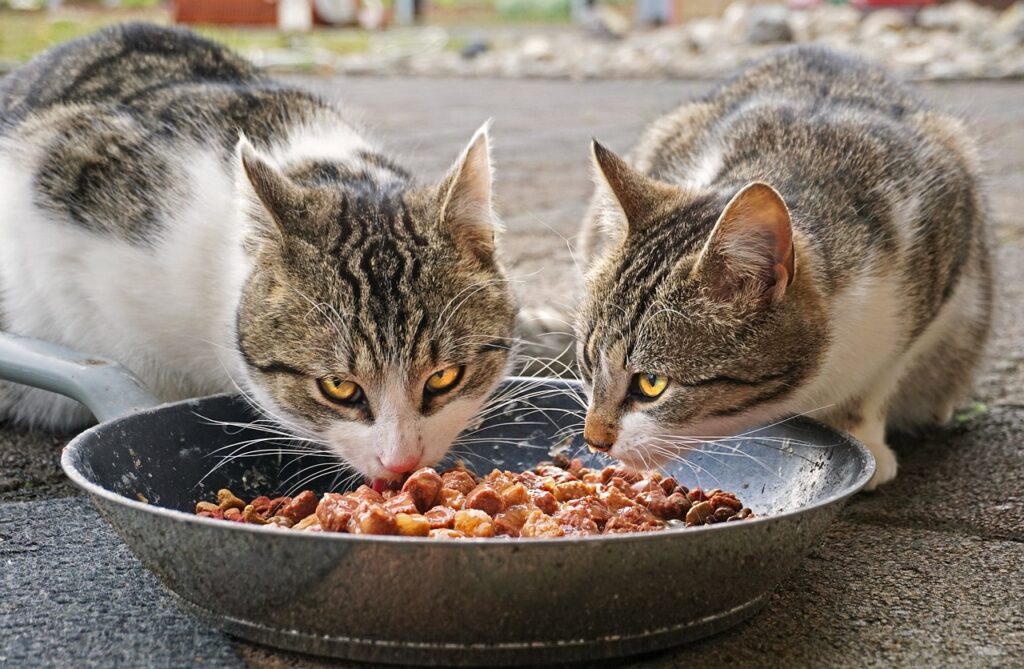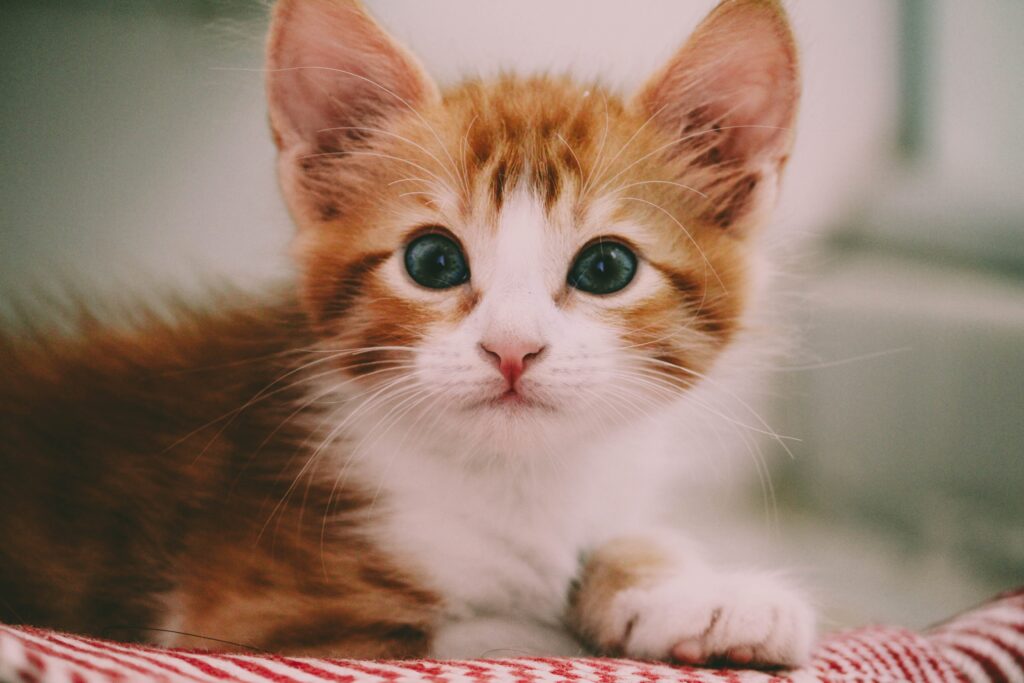Cats need to eat a diet rich in important nutrients, including proteins, lipids, carbs, vitamins, and minerals, in order to maintain maximum health. Because cats are obligate carnivores, which means that the majority of their diet should consist of animal-based proteins, they need protein and energy more than other animals.
Kitten (0-6 months):
Protein Requirements:
For growing kittens to develop their muscles and tissues, a high protein diet is essential. For developing kittens, the Association of American Feed Control Officials (AAFCO) suggests providing at least 30% protein on a dry matter basis.
Energy requirements:
Compared to adult cats, kittens often require 1.5 to 2 times more calories per kilogram of body weight. Kittens typically consume 200–250 kilocalories per kilogram of body weight each day on average.
Adult Cat (7 months – 6 years):
Protein Requirements:
Cats that are adults need protein for maintenance, immunological support, and general wellness. For adult cats, the AAFCO suggests a minimum of 26% protein on a dry matter basis.
Energy requirement:
Adult cats have different energy demands depending on their size, activity level, and general health. It is essential to have a well-balanced diet with 50–70 kilocalories per kilogram of body weight on a daily average.

Senior or Aged Cat (7 years and older):
Protein Requirements:
Senior cats still need protein to maintain their general health and muscular mass. It is possible to point out high-quality proteins; guidelines usually fall between 25 and 30 percent protein on a dry matter basis. The precise amounts might change depending on a person’s medical history.
Energy requirements:
In order to avoid obesity or tackle changes in exercise levels, dietary adjustments can be required. Senior cat diets should have an average caloric content of 50 to 60 kilocalories per kilogram of body weight per day; to address some age-related health difficulties, they might need to be adjusted, though.
Conclusion:
It’s important to remember that these numbers are only suggestions; each cat may have different dietary requirements. A veterinarian’s advice is crucial when changing a cat’s diet to meet its unique needs, which include considerations for its breed, lifestyle, and state of health.

